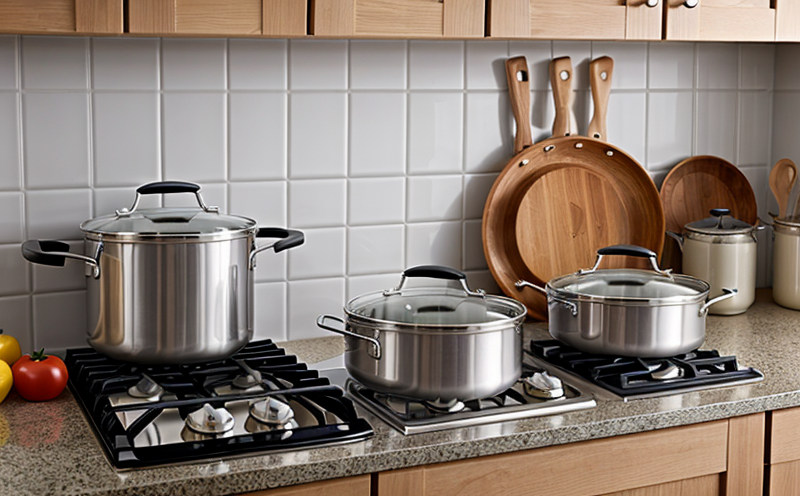Renewable Material Content Testing in Kitchenware
As consumer awareness regarding environmental sustainability grows, demand for products made from renewable materials has surged. This trend is especially relevant in the kitchenware and cookware sector due to the high volume of use and potential impact on daily life. Renewable material content testing plays a critical role in ensuring that products meet both regulatory standards and consumer expectations for eco-friendliness.
Our laboratory specializes in providing comprehensive renewable material content testing services tailored specifically to kitchenware items such as cutting boards, cookware, utensils, and more. By accurately measuring the percentage of renewable materials used in these products, we help manufacturers comply with international regulations while also enhancing their brand reputation through transparent sustainability practices.
The process involves several key steps: first, raw samples are prepared according to standard procedures; then analytical methods like near-infrared spectroscopy (NIRS) or gas chromatography-mass spectrometry (GC-MS) are employed to determine the exact composition. Results provide insights into how much of a given material is truly renewable versus synthetic alternatives.
Understanding this information allows companies not only to meet but exceed expectations set by various organizations including ASTM International, ISO, and others who issue relevant guidelines on sustainable materials usage in consumer goods. It also enables informed decision-making processes around product development cycles, ensuring new offerings align perfectly with current market trends towards greener technologies.
Furthermore, accurate renewable material content testing supports supply chain management efforts aimed at sourcing ethically produced raw ingredients while reducing waste generation throughout manufacturing operations. This service is essential for any company looking to establish itself as a leader in eco-friendly product innovation within the kitchenware industry.
Applied Standards
| Standard | Description |
|---|---|
| ASTM D6866 | Test Method for Determination of Biobased Content of Solid Organic Materials Using Near-Infrared Spectroscopy (NIRS) |
| ISO 17025:2017 | General Requirements for the Competence of Testing and Calibration Laboratories |
The ASTM D6866 standard specifies how to measure biobased content using near-infrared spectroscopy (NIRS), which is particularly useful when analyzing complex mixtures like those found in kitchenware made from multiple renewable components. Meanwhile, ISO 17025 ensures that our laboratory maintains rigorous quality controls throughout all testing processes.
Benefits
- Enhanced compliance with international regulations on sustainable materials usage
- Informed decision-making during product development cycles
- Support for supply chain management aimed at ethical sourcing and reduced waste generation
- Better understanding of the true biobased content of products, leading to more accurate labeling claims
- Potential cost savings from optimized production practices based on test results
- Improved reputation among environmentally conscious consumers
- Access to cutting-edge analytical techniques that ensure precise measurements
Beyond mere compliance, this service offers valuable strategic advantages. By knowing exactly what percentage of a product is renewable, manufacturers can make informed choices about ingredient sources and production processes. This knowledge helps in creating products that are not only better for the planet but also more appealing to environmentally aware customers.
Competitive Advantage and Market Impact
- Positioning your brand as a leader in sustainable practices within the kitchenware industry
- Aiding in differentiation from competitors who may not offer similar levels of transparency regarding their product sustainability credentials
- Potential for increased market share among eco-conscious consumers
- Enhanced reputation and trust with stakeholders, including investors looking for socially responsible investments
- The ability to showcase leadership in innovation through the use of advanced analytical methods that go beyond basic compliance measures
The results from renewable material content testing can significantly influence purchasing decisions. Consumers are increasingly seeking out brands that demonstrate commitment to sustainability. By providing clear, verifiable information about the percentage of renewable materials used in their products, companies gain a competitive edge in attracting these consumers.
In addition, this type of testing supports broader industry-wide initiatives focused on reducing reliance on non-renewable resources. It contributes to overall efforts aimed at creating more sustainable supply chains and fostering innovation across various sectors within consumer goods manufacturing.





